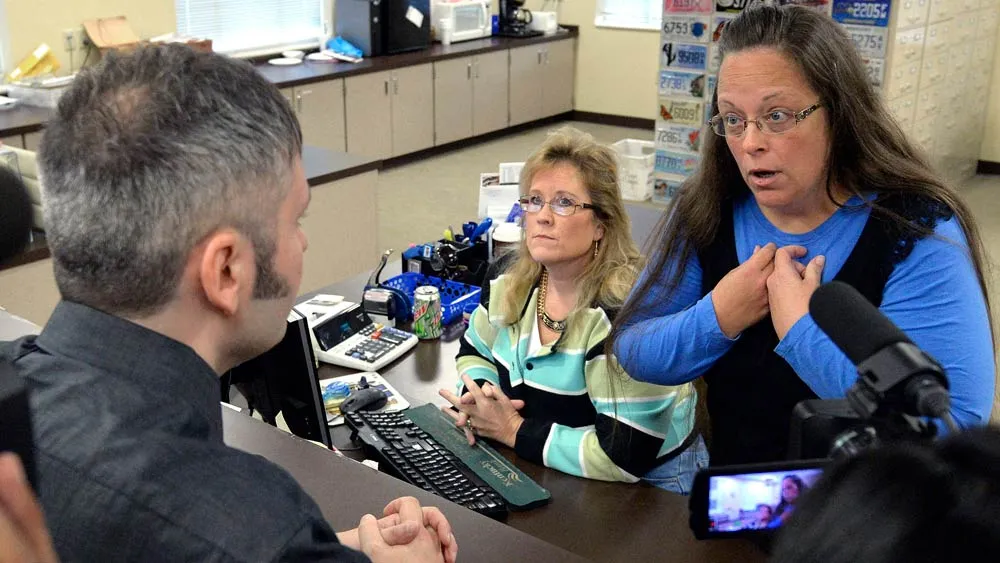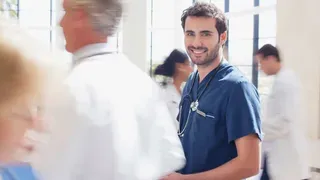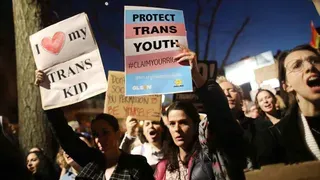September 22, 2015
Pope Calls on Cubans to Live 'Revolution of Tenderness'
Nicole Winfield and Michael Weissenstein READ TIME: 3 MIN.
Pope Francis on Tuesday called on Cubans to rediscover their Catholic heritage and live a "revolution of tenderness," highly evocative words in a country whose 1959 revolution installed an atheist, Communist government that sought to replace the church as the guiding force in people's lives.
Speaking at Mass in Cuba's holiest shrine, with President Raul Castro attending, the pope said that "our revolution comes about through tenderness, through the joy which always becomes closeness and compassion, which isn't pain, and leads us to get involved in, and to serve, the life of others."
The pope's homily in the Sanctuary of the Virgin of Charity of El Cobre was the latest in a series of carefully worded critiques at Cuba's system during his four-day trip to Cuba.
Francis has been carefully balancing his desire to work with Castro's government on its path of internal reform and detente with the United States with his longstanding critiques of Communism as a system that stifles the spirit.
He was ending his visit to Cuba on Tuesday with a pep talk with families before flying north to Washington for the start of his U.S. tour.
His address to families and symbolically potent flight to the United States underscore two of the big themes of his Cuba pilgrimage: encouraging reconciliation within families and between the U.S. and Cuba. He worked behind the scenes as mediator in 18 months of secret talks on re-establishing diplomatic relations between the two nations.
On his arrival in Cuba, the pope described the success of the negotiations as an example of peacemaking for the entire world. The Vatican spokesman said Monday night that this trip was aimed partly at encouraging progress in the continuing effort to normalize U.S.-Cuba ties in fields ranging from commerce to environmental cooperation.
Beyond its importance to the pope, the state of the family has been a longtime concern for the Roman Catholic Church in Cuba. Economic deprivation and successive waves of emigration have left many families broken and divided, and the church has focused intensely in recent years on trying to encourage traditional values like hard work, respect and fidelity that many Cubans worry have been lost over the years.
Those concerns about moral degradation are widespread among Cubans regardless of how religious they are.
While around 10 percent regularly attend Mass, many more believe in religious icons like the Virgin of Charity of Cobre, whose sanctuary is important to both observant Catholics and followers of Afro-Cuban Santeria traditions. The foot-tall wooden statue is kept in an ivory-colored church with soaring red domes nestled in the shadow of the Sierra Maestra mountains in the small community of Cobre just outside Santiago. One corner of the church where Francis celebrated Mass Tuesday Mass is dedicated to offerings left for the Virgin, including votives and thousands of handwritten notes.
"She means so much," said Juana Isabel Gonzalez Huart, a retired state worker. "She's the mother who protects us."
Before flying to Santiago on Monday, Francis celebrated Mass in Holguin, a city of about 300,000 in eastern Cuba. In his homily, he pressed some of the subtle themes he has developed during this balancing act of a Cuban visit. He told the crowd of how Jesus picked a lowly and despised tax collector, Matthew, and instructed him without casting judgment to follow him. That act of mercy changed Matthew forever.
The pope's visit comes at a delicate moment of change in Cuba. Beside the re-establishment of diplomatic relations, the communist government is undertaking modest free-market reforms that have opened some sectors of the economy to private enterprise, creating socioeconomic inequality and growing cynicism, particularly among young people.
As a result, Francis has emphasized themes of reconciliation and looking beyond prejudice and ideologies.
After arriving in Santiago, the pope went to the Sanctuary of the Virgin of Charity of Cobre, the site of the Mass on Tuesday. After laying a bouquet at the feet of the statue, Francis made the sign of the cross and prayed, sitting and silent, for about 10 minutes. He then stood and recited a prayer.
Francis appeared to be in some discomfort walking. He has needed extra help getting up and down stairs during this trip, and the Vatican spokesman acknowledged Monday that the pontiff wasn't moving around well. Francis suffers from sciatica and has a bad knee.







